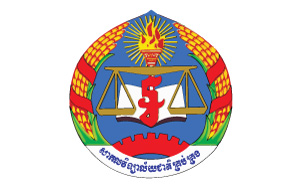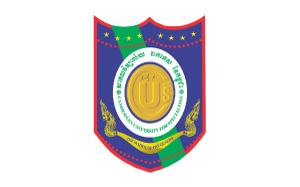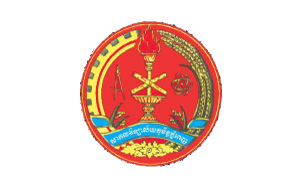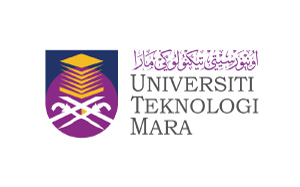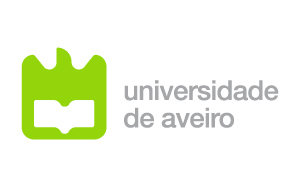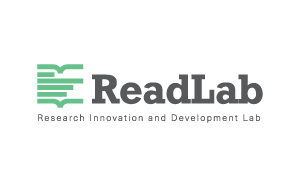National University of Management (NUM) is an educational institution that aims to be a leading research university. NUM is working on key mission which is to improve and apply the best quality standards in Research, Entrepreneurship and Innovation. NUM is firmly committed to the development of competent and socially responsible human resources with high intellectual knowledge, skills, and ethics in order to be able to make more productive contribution to the socio-economic development of the country.
Partners
University of Heng Samrin Thbongkhmum (UHST) was established in 2016. The vision of UHST is to become a leading Educational Training Center in Science and Development in Cambodia. In this sense, UHST provides public with education, research, and community development and social services with the focus on Science, Technology, Engineering and Mathematics (STEM). UHST offers Vocational Training-TVET, Associate’s, bachelor’s degree, and master’s degree Programs, which comprise of four faculties and three institutes with 22 programs, overall.
Chea Sim University of Kamchaymear (CSUK) formerly Maharishi Vedic University is the first university established in 1991. CSUK is a public higher education institution. The university was run by Cambodian Government appointed administrators and foreign specialists and advisors. Australian Aid for Cambodia Fund provided support on operational expenses and foreigner professors before its mission ended in late 2008. The University changed its name to Chea Sim University of Kamchaymear on December 9, 2008.
Build Bright University (BBU) was founded in the name of ‘Faculty of Management and Law’ (FML) in 2000. In 2002, FML changed its institutional position from the Faculty to the University by offering multi-disciplinary courses to serve the interests of many kinds of learners and researchers. The university is known by the name as ‘Build Bright University’ (BBU), publicly known as the university that builds bright knowledge and skills for all. Subsequently, due to conducive environment of political stability and economic prosperity in the country, BBU has experienced rapid development and expanded its popularity amongst the public throughout the country. Today, the university has a reputation for excellence in the fields, such as Business Management, Languages, Education, Information Technology, Civil Engineering, Economics, Political Sciences, and Law, in which the graduates of the university have landed in good jobs.
Cambodian University of Specialties (CUS) was formerly known as Cambodian Institute for Specialties (CIS) established in 2002. CUS is one of the largest and leading private universities in Cambodia with its eight campuses nationwide – two in Phnom Penh, and other six branches are located in six different provinces: Kampong Cham, Siem Reap, Battambang, Banteay Meanchey, Kampot and Kampong Thom. It has currently around 20.000 students studying at all levels of educations. CUS is providing an opportunity to the Cambodian population to achieve excellence through our education for an excellent career, through its pool of qualified human resources together with the modern equipment and facilities. The university offers different levels of education ranging from Associate, Bachelor, Master and Doctorate degrees as well as vocational training programs with varieties of specializations.
The Royal University of Phnom Penh (RUPP), founded in 1960, has undergone a series of transformations to become the leading national university in Cambodia. Rupp will grasp opportunities and assume a key role in driving Cambodia’s socio-economic development through the creation of human capital and the provision of quality research and renovation, training and community service. Rupp aspires to contribute to the achievement of the 2030 and 2050 national development goals of the Royal Government of Cambodia
The vision of the Ministry of Education Youth and Sport (MoEYS) is to establish and develop human resources that are of the very highest quality and are ethically sound in order to develop a knowledge-based society within Cambodia. To achieve this, MoEYS has the mission of leading, managing and developing the education, youth and sport sector in Cambodia, responding to the socio-economic and cultural development needs of its people and the reality of regionalization and globalization.
Universiti Teknologi Malaysia (UTM) is a leading innovation-driven entrepreneurial research university in engineering, science and technology. UTM as the biggest postgraduate research university in technology has also established a reputation for innovative education and cutting-edge research, with a vision towards the development of creative human capital and advancement technological innovation. UTM
Universiti Teknologi MARA (UiTM,) is the largest public university in Malaysia. The university is founded in 1956 with one main campus, 13 state campuses and 21 satellite campuses. There are 24 faculties grouped into three clusters (Science and Technology, Business and Management and Social Sciences and Humanities) and 3 academic centres. The philosophy of UiTM is “Every individual has the ability to attain excellence through the transfer of knowledge and assimilation of moral values so as to become professional graduates capable of developing knowledge, self, society and nation”. The vision of the university is “To establish UiTM as a Globally Renowned University of Science, Technology, Humanities and Entrepreneurship”.
The Ateneo de Manila University (Filipino: Pamantasang Ateneo de Manila; Spanish: Universidad Ateneo de Manila), (ADMU) also known simply as the Ateneo de Manila or the Ateneo, is a private Catholic Jesuit research university in Quezon City, Philippines. It was founded in 1859 by the Society of Jesus, and has grown from a small publicly-funded school for the children of the Spanish colonial elite, into a nationally- and internationally-recognized teaching and research university. It is also one of several Jesuit-run educational institutions in the country bearing the Ateneo name. The university provides instruction in both basic and higher education across eleven schools, clustered into three units. Higher education is provided by two units: the Loyola Schools, a group of four schools which provide undergraduate and graduate instruction in the arts, humanities, social sciences, natural sciences, engineering, and business management; and the Professional Schools unit, composed of four schools providing professional education in law, medicine, business, and governance.
West Visayas State University (WVSU) traces its origin from 1902 as a tributary normal school known as Iloilo Normal School. Today, West Visayas State University has an esteemed place in the academic community through nine degree-granting units and six (6) integrated campuses. The University was identified by the Commission on Higher Education as Center of Excellence in Teacher Education and Center of Development in Nursing, Agriculture and Forestry. With a constant 100% passing rate, it has retained its record as the No. 1 Performing School in the Nurse Licensure Examination (NLE). The University is ISO 9001:2015 certified per assessment of the SOCOTEC Certification International, an international third-party registrar in 2018. Likewise, the University recently received 3 Stars in the QS Rating System and 4 Stars in the University Performance Metrics (UPM) in 2020. WVSU is one of the largest universities in the country in terms of the student population of 16,063 as of First Semester AY 2020-2021. The University has a total aggregate land area of 3,557 hectares. Another asset that makes the University will know are its 2,502 competent human resources. Using its assets and resources, WVSU continues to live its philosophy “ where excellence is a tradition.”
Shahjalal University of Science and Technology (SUST) was established in 1986 with the vision to be a leading university of excellence in Science and Technology with a strong national commitment and significant international impact. It is now one of the top ranked public university in Bangladesh. It started its journey on 13 February 1991 with only three departments: Physics, Chemistry and Economics, 13 teachers and 205 students. It has now expanded to 7 schools, 27 departments and 2 institutes. The number of teachers has grown to 552 and the students to 10922. Besides, the University has 13 affiliated medical colleges under the School of Medical Sciences with 4000 students. SUST introduced the integrated honours course for the first time in Bangladesh. It introduced the semester system from the 1996-97 session and there was a remarkable improvement in the quality of education after the introduction of this system, which was visible even in the national arena.
The Bangladesh Agricultural University (BAU was established in 1961. The University campus is situated at the western side of the old Brahmaputra river covering an area of 1200 acre, 3 kilometers away south of Mymensingh town. It has 6 faculties and 44 departments. BAU’s Institutes include the Graduate Training Institute (GTI), the Institute of Agribusiness and Developmental Studies (IADS), the Interdisciplinary Institute of Food Safety (IIFS) and the Char and Haor Development institute. It offers degrees both at undergraduate and postgraduate level.
Gedu College of Business Studies (GCBS) is one of the constituent colleges of the Royal University of Bhutan. It was first conceived by His Majesty the Fourth King Jigme Singye Wangchuck and the then National Assembly resolved to establish one at Gedu during the 85th Session. The college is strategically located in close proximity with the capital city Thimphu and the industrial and commercial town of Phuntsholing, spread over 75 hectors of land area.
GCBS is a premier business college committed to offer holistic and technology driven business and management education in the country both at undergraduate and post graduate level providing various specialization areas under MBA, BBA and BCom programmes. The college has an excellent team of both local and international faculty members with academic and industrial backgrounds supported by the learning infrastructure such as accommodation, guest rooms, ICT labs, Library, cafeterias, conference hall, and other sports facilities.
The Kathmandu University (KUSOM) is an institution of higher learning dedicated to maintain high standards of academic excellence. Kathmandu University has the vision to be a world class university with Quality Education for Leadership as its motto. The University offers its academic and short-run programs through seven schools: School of Management, School of Science, School of Engineering, School of Arts, School of Education, School of Medical Sciences and School of Law. Each school has a Faculty Board that functions under the supervision of the Academic Council. The Faculty Board of each School is responsible for approving its academic programs. Different subject committees under the Faculty Board recommend the curricula for different programs and review them periodically.
Pokhara University (PU) established in 1997, is a public and non-profit university in Nepal. It is the second largest university in terms of students’ enrolment in the country. The University is committed to excel on delivering qualitative education through its four major faculties namely Faculty of Management Studies, Faculty of Health Sciences, Faculty of Science and Technology and Faculty of Humanities and Social Sciences and is currently running 61 different academic programs. The University offers 1000+ courses in its graduate, post-graduate, MPhil and Doctoral programs. It has extended its outreach globally and has MoU’s with 65 universities and institutions from 20 different countries. In order to realize its vision to be a leader in the promotion of education through quality higher education, entrepreneurship and community service, the University has consistently focused in imparting education through ideal blend of skill-based learning, entrepreneurial capabilities and research aptitude in its curriculum and programs and thus has instilled centers like NITEC (Nepal Innovation Technology and Entrepreneurship Center).
The University of the Aegean (UAegean) founded in 1984, aims to introduce new approaches in higher education in Greece and worldwide and promote regional development. Situated in 6 picturesque islands in the Aegean Archipelago, the UAegean offers a unique natural, cultural and human environment for modern studies in the ancient cradle of knowledge. From its earliest days, the UAegean challenged the prevailing limitations of the academic endeavor in Greece, both in terms of educational approach and in terms of organizational structure. These challenges were soon transformed into advantages which have culminated in academic achievements and the rapid development of the institution. The UAegean has evolved into an international research –oriented University offering 18 undergraduate and 40 postgraduate programmes in modern interdisciplinary thematic areas such as environment, communication systems, cultural informatics, product design, food and nutritional sciences, education design and Mediterranean studies.
The University of Aveiro is a public Foundation since 2009 under private law. It is currently attended by approximately 17000 graduate and post-graduate students, 9% of which are international students. The academic community further comprises around 1400 teaching staff and researchers, and 630 technical, administrative and managerial staff. The University of Aveiro fosters interdisciplinarity and flexibility through the organisation and management of its activities and objectives, as well as openness to society and close links to the local business environment. An integral part of the university’s structure is a set of units dedicated to various research activities, and within the framework of the third university mission (cooperation with society), there are interface structures that establish links with the both the local region and society as a whole.
The University of Nicosia (UNIC) is the largest university in Cyprus with more than 12,000 students from over 70 countries across the globe, coming together in an innovative and transformative learning space. It was established in 1980 and its main campus is located in Nicosia, the capital city of Cyprus. UNIC’s degree programmes and departments were the first of their kind in Cyprus. Over time, several programmes such as Medicine, International Relations, Accounting, Law, and Architecture, have developed into some of the most well-regarded in Cyprus and in the region. Today, UNIC’s new programmes focus on cutting-edge research, making us global leaders in certain fields, such as in our very successful initiative in Digital Currency/Blockchain Technology.
ReadLab is a research institution that aims to generate positive social and sustainable impact through innovation. It brings together a multidisciplinary team of specialized researchers in the fields of Health, engineering, communication technologies, education and social and political sciences with a long experience in project- management and implementation of national, EU-funded and international projects.
Center for Social Innovation (CSI) is a Research and Development organization, which focuses on fostering social innovation that can bring about a positive change to local, national, regional, and global entities. These entities include but are not limited to governments, local administrative agencies, non-for-profit agencies, commercial entities, and educational institutions. The CSI team is composed of open-minded, fully equipped researchers, entrepreneurs, project managers, trainers, and Information Technology specialists. CSI encompasses the capability and capacity to identify social needs, design and implement adjusted initiatives, and provide for sustainable growth. The CSI team’s areas of expertise are in the fields of traditional education and e-learning, entrepreneurship, start-ups, innovation, creativity, negotiations, IP advisory services, social responsibility, business advisory solutions, data analytics, information technologies, project management, project evaluation services, product validation, training and computer gaming. CSI draws know-how and skills from its wide global network, which includes academic institutions, IT companies, public services, international organizations, start-ups, and public services.


